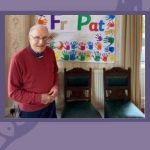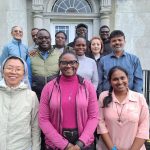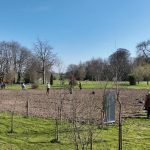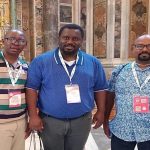Have you ever thought of why you acted justly, with kindness or in a caring way with someone you knew or who was a stranger?
One reason could be that it was for the sake of doing good. Created in the goodness and likeness of the Lord, we are united to him and are inclined to do good though sometimes we may find ourselves not moving in that particular direction.
The Second Reading today urges that “Whatever we do, we do it for the Glory of God” not for ourselves. Since we live in a community that is inter-connected, when we do good to others we demonstrate love of neighbour and of God, fulfilling the commandment that calls us to love God and to love human beings.
As we are naturally inclined to do good, our conscience challenges us when we do the opposite; the negative energy in us always separates us from our inner selves, from the community, and from God, as the leper in the First Reading who had to separate himself from his community. Different ‘types of leprosy’ afflict people; however, when we ask Christ to free us from our afflictions, he will do it for us. As the leper speaks to Jesus in the Gospel “If you want, you can cure me”, Christ stretches his arms touching the leper, and says, ‘of course, I want’ and cures him of his leprosy.”
What strikes me is Jesus’ answer, the response to do good, the courage to restore life, and the long-term action to unite the leper back to the community and to God, since lepers were expected to stay separate from the community, and not to participate in any ceremonial ritual.
Christ comes to us too in different ways to restore new life in us, to transform each one of us from leprosy by creating a new spirit in us. Through the sacraments, he cleanses us from all that separates us from his love, and he restores grace so that we may attain the end that he has promised those who know Him.
As we celebrate the World Day of the Sick, may Christ enlighten the eyes of our mind, so that we can see what hope his call holds for us.
Photo by Kelly Sikkema on Unsplash








